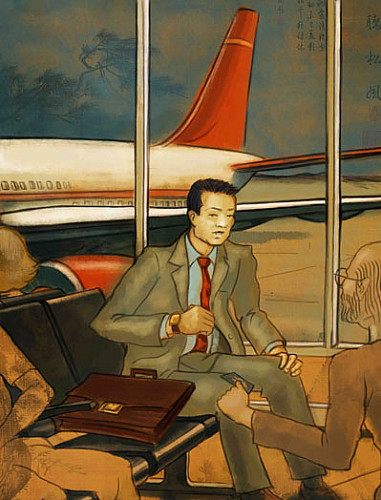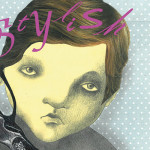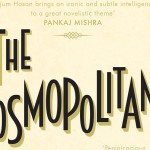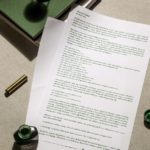Figure In A Landscape Painting
There is a man sitting before me, sharply dressed, and he’s talking to himself. Now and then he glances with indifference at the crowd. A couple’s been eating various packaged foods continuously and without comment. Next to them a mum and toddler pair both equally engrossed in their tablets, forefingers zigzagging steadily across the screen. No one’s listening to the band of elderly women, their hair freshly coloured and set, whose excited chatter sets them apart from the others. We merely wait, these women anticipate.
The man lifts the sleeve of his tailored jacket to check the time on his grand watch. Still 45 minutes to go for the flight to Hong Kong – mine and presumably his. He places his hands neatly on his knees and seems to narrow his attention on the present for a moment but soon he’s lost again – those glazed eyes and the soft movement of lips arguing with an imagined someone or conversing urgently with himself.
I examine him, then glance away, but at some point he notices me staring. Having got his attention, I bend down to the bag between my feet and pull out a postcard.
‘Pen,’ I ask him, making a writing motion. He takes one out from his pocket. I expect it to be something, like the rest of his get-up – the beautiful valise, the lovingly-crafted shoes. But it’s an ordinary ball point with the name of a company, Forever Happiness Enterprises, stencilled on it in English. I take it and write the date at the top. And then nothing; this isn’t really a postcard; it’s a printout of a newspaper photo. And I don’t quite know what to put down on the back, not yet.
Like I have done repeatedly with strangers over the last few days, I hold out the image to him, the photograph of a bearded man with hooded eyes, smiling faintly into the light. My fellow traveller, still in that posture of intense contemplation, seems to give me the briefest of nods. Finally, I think, and I’m almost whispering to myself too. Someone I can talk to.
‘You recognise him? You’re going to Hong Kong, perhaps you’ve seen the big installation he did there, the house without doors?’ I ask. I look at the man’s guarded expression and can tell that he knows some English. He confirms this when he says, ‘No English.’
I came to Beijing a week ago, a tourist, of course, just one of the thousands who wander dazed through the Forbidden City, fight the hordes at the Great Wall, look in at Mao’s mausoleum, and then go shopping. I rounded off by buying, after bargaining reluctantly but with perseverance because the guidebook insisted on it, a fake leather handbag from Yashow market to mollify the wife. I did all this and kept thinking, my God, I’m in China, I’m after something else.
I collect scraps of the world, reading the newspapers – three Indian ones every morning, two international ones online. It’s how I spend my retirement, following the news. None of it really gets to me in my comfortable living room. It all just comes down to a series of parables, and I smile at the lessons offered and continue reading. And yet one day, I’m not quite sure when, I formed the notion that I should go to China. There is something happening there, the newspapers said, and it’s happening in a hurry. I read them and sunk deeper into my armchair in pleasant lethargy but then the country’s most famous artist died.
I’d been following this fellow too over the years, kept tabs on him. I liked him. He was a high-class prankster, a real pain in the government’s side though he’d declared it was the government who was a pain in his. He’d once hired a helicopter to drop pamphlets of high-minded classical Chinese poetry printed on toilet paper over Tiananmen Square. His latest escapade involved sneaking his army of volunteers into Beijing’s most show-off skyscraper and getting them, for an hour, to hold out giant posters through each of its windows with the names and mug shots of those whose homes had been razed to put up the building. The higher-ups didn’t like it and he was arrested, as he’d been on occasion, but this time he didn’t come back. He died in jail, and China being China, no journalist and certainly no ordinary citizen seemed to have any clue what had happened.
I know nothing about art except what the newspapers tell me, yet this guy wouldn’t leave me alone. Why should he have to die like that? Why wasn’t the world on the boil over it? It was an outrage. The Europeans seemed to be thinking the same thing and gave him the Nobel for peace. And what could I do? What had I ever done except to read, receive all the bad news coming in and put it away, God knows where, for despite it I was still able to cushion my head on pleasant dreams every night. I bothered myself with the thought of how much the artist had stuck his neck out, and I bothered my wife, till she said, ‘Since when did you start feeling sorry about things?’
‘I know. It’s not my business.’
‘And China! They’re an enemy country.’
‘But a good man has died, a man who resisted.’
‘Good people die in the newspapers every day.’
‘It’s starting to trouble me. I need to do something about it.’
‘Cancel your subscription to the papers.’
‘Or we could go to China and pay our respects.’
Me, who cannot bear to travel, who lets his pension pile up despite the wife’s innuendoes with reference to other people’s holidays – what was I talking about?
She asked if I was going soft in the head. I told her to come along. The more she scoffed, the more determined I got. If I could do nothing, I would go to China. I was well-read, fully up to scratch about world events but this would be something else. This was between me and the artist. I’d go to China and ask folks what they thought of this man who, one could say, died for them. For once, I want to find out for myself.
And now I’m on my way home. I have drifted through layer after layer of this endless airport, fascinated by the unrelenting expanse of it, amazed that a human could imagine something so intent on rendering humans puny. From Hong Kong I’ll take the flight home to Delhi. But there’s still the unfinished matter of the artist. This man here might know something, he seems like a sensitive type, but he’s not opening his mouth. No more his muted monologue.
‘Oh, I know,’ I say. ‘He’s dead, he died strangely, and it’s difficult to talk about such things. But what about you? How did you feel hearing the news?’
The man motions to have his pen back.
‘Look, I’m just a tourist. Just chatting, that’s all.’ I want to know what he was talking to himself about, and the source of the great clothes, and also, more generally, about life in China after the artist’s light was extinguished.
‘Country?’ asks the man, seeming to relent once I’ve put my picture away.
I tell him and then say, ‘I’m retired myself but you’re clearly in business. Run a company? Something with good profits?’
The man nods sagely but doesn’t speak, and I see the clouded distraction in his eyes. Something is bothering him badly and if I turn my head away for a moment he will be lost in his reverie again. Like the artist, he could be the victim of a government vendetta, or maybe he’s arguing with those who took off from the same starting line as he did but, unlike him, could not make it.
We are, in this sleek departure lounge, engulfed in the sound of laughter and the smell of doughnuts. Everyone is absorbed in the life before them, this 21st century life that is crowded with the taste and colour of new things. Except my friend. He is holding on to some loss from another time, and God knows this country has seen other times. He alone, of everyone I have met in this country, will appreciate why I have flown from Delhi with a picture of a murdered Chinese artist in my hand.
‘You can tell me,’ I say, tapping on my forehead. ‘Some problem here?’
But he just says, ‘Name?’
I’ve tried with others. When a young couple on the Great Wall requested me to snap them, I showed my postcard in return, asked if they were fans, and watched their faces closely; it was clear they had absolutely no idea. But then the boy said, taking the card, ‘Maani.’
‘No Chinese,’ I said, looking around to see if anyone could translate. Despite the frustration, I was again struck by the immense thought: here I am. The dessicated brown winter mountain landscape was dotted with a few coniferous trees and in the foreground this wall, the scale tremendous, snaking up and down as far as the eye could see, its serrated edge visible against the sky.
There must have been a hundred tourists streaming past me, mostly local, some interested in this helpless looking man and this boy going ‘Maani, Maani’ but none stopped. Finally, the girlfriend took out her wallet, showed me a five yuan note and said ‘Maani’.
They thought I was selling postcards and wanted to pay me for it! But ‘money’ turned out to be the only English word they knew.
So the next day I consulted the guidebook and went to the National Museum of Art to look at copies of landscape paintings from a thousand years ago. The papers have informed me about the progress made as well as the voices silenced, villages erased, the killing of mountain and water, but spending an afternoon before those delicately inked outlines on silk, I discovered another China. Those long-gone visionaries, those reclusive gentlemen artists of old who withdrew into nature every time the world of men grew messy, who created their own landscapes of lofty crags and hidden streams to mirror their souls — don’t they have descendants in the present? How can a great artist die with no one to mourn him?
Coming out of the museum I spotted a man on the pavement, selling art books and paintbrushes. A girl squatted on her high heels before him, looking at a page with a painting of plum blossoms. She must be an art student; surely she would talk. I approached her cautiously and said hello respectfully. She happened to speak excellent English, so I asked her about bus routes and the nearest metro station. And then I brought out my photograph.
‘Just wanted to know how artists like you are protesting this tragedy. Surely you’re not going to let your government get away with this?’
She stood up at once, tottering in her heels, dropping the book to the ground.
‘I don’t know you,’ she said, her voice cold. She kept repeating this as she strode off, never once looking back. I turned to the vendor but he growled at me in Chinese so I took off too. It could well be that large things like wars start with small skirmishes like these.
My week in Beijing was ending. I walked on the grand avenue of Wangfujing, the shops full of people, and I thought, Oh come on. Isn’t there a single person willing to talk? I apologised to the artist in my mind. And I told him Beijing felt less funny without him but that it was still wonderful to be there.
And now I’m here, pleading silently with my airport friend, and he’s finally saying something.
‘Practice,’ he says. ‘No English, I try.’
‘Ah,’ I say, not quite understanding.
‘Hello my name is Mister Chang very pleased to meet you,’ he rattles off in a stream that suggests he’s not quite sure of the meaning of these words but is absolutely confident about the sound of them.
‘Going Hong Kong. Business meeting with Amelicans.’ He’s all lit up now.
‘Of course,’ I say, the mystery unravelling. ‘You’re practising English by yourself. So sorry I disturbed you.’
So that’s that. I subside into my seat and ponder the last few days, wondering what I will tell the wife. Perhaps she was right after all. One cannot reach out and touch reality at will. The bustle around me persists, the other passengers are as engrossed in their activities as my man is in the mouthing of his difficult English lines.
And then I suddenly sit up again. I know who he is. He’s here in this immense airport in this great big country and there’s no way he can even imagine the monstrous whole, yet he’s secure about his own narrow passage through it. This makes him like one of the tiny figures in the paintings I saw in the museum. Till your eyes alight on that dot in the picture, you have no way of gauging its depth or scale. But that man – the poet meditating on the hilltop or the soldier on horseback – does it for you and you see the whole thing at once: towering cliffs, rivers, waterfalls, expansive forests, the grandeur of it. Alongside, you see what he’s seeing, the limited, human view.
The flight is announced and, smiling, I join the queue.
Related posts from Verve:
Verve Trending
Sorry. No data so far.
us on Facebook to stay updated with the latest trends






